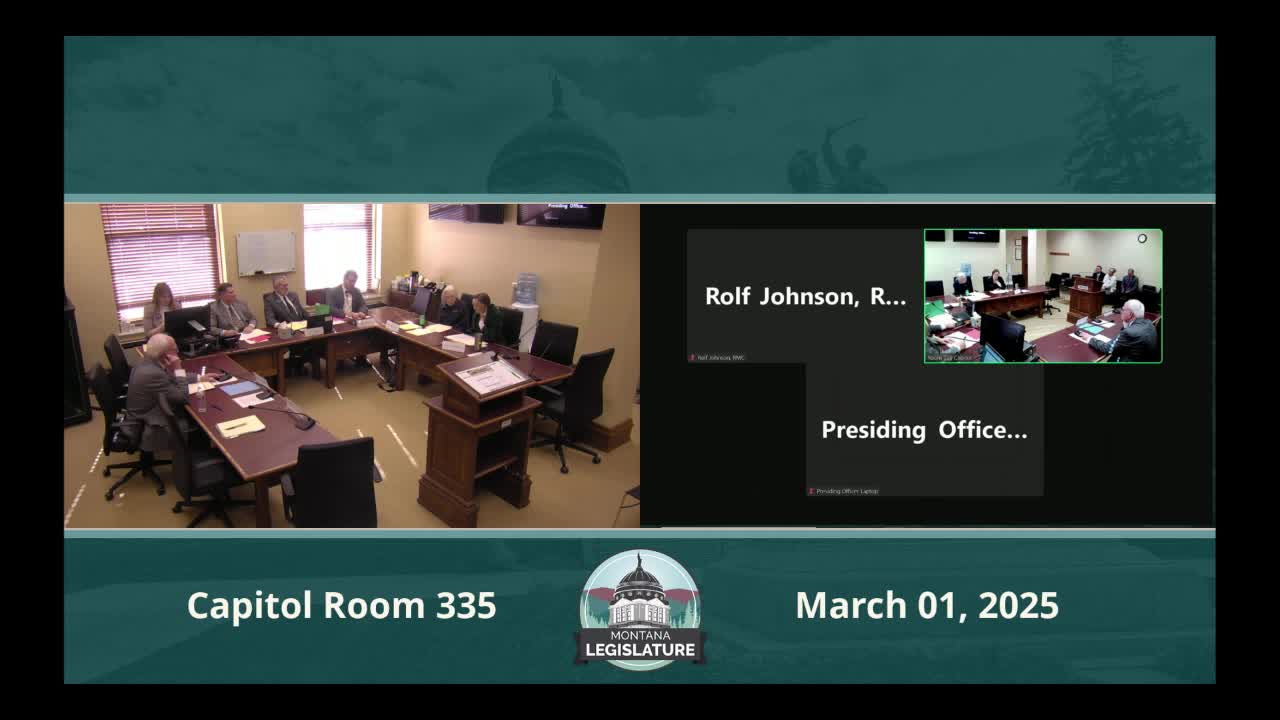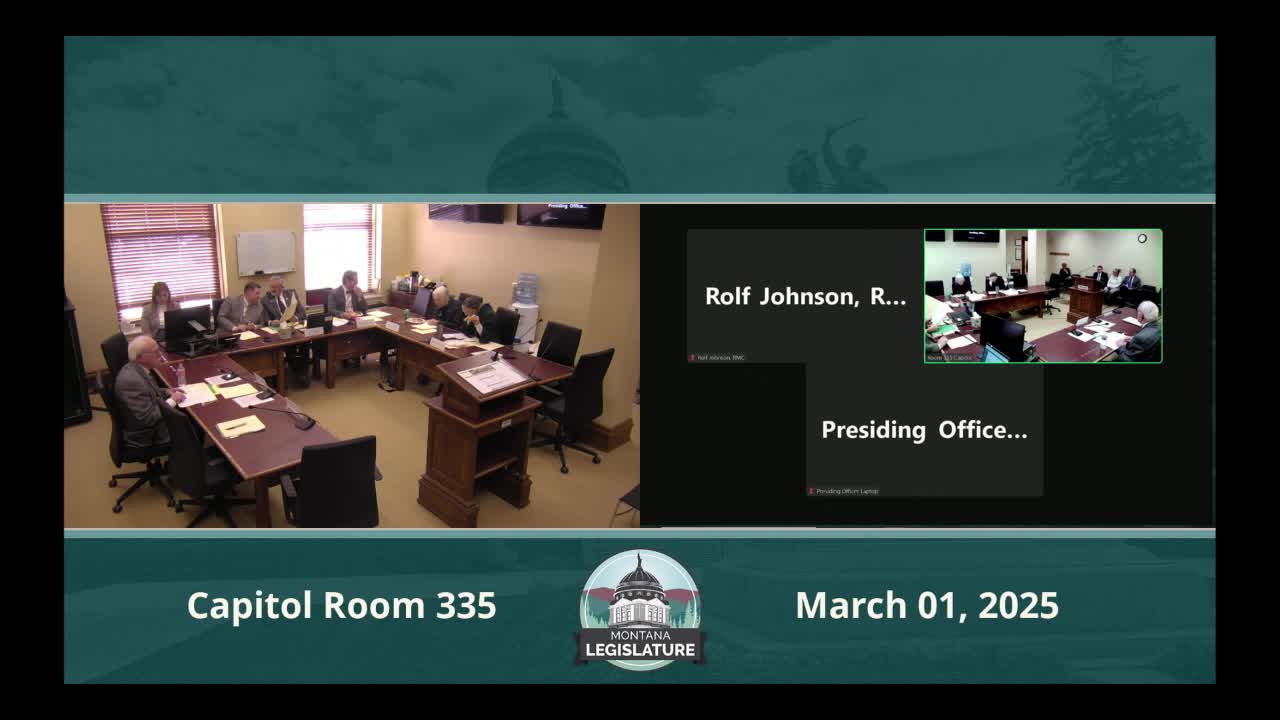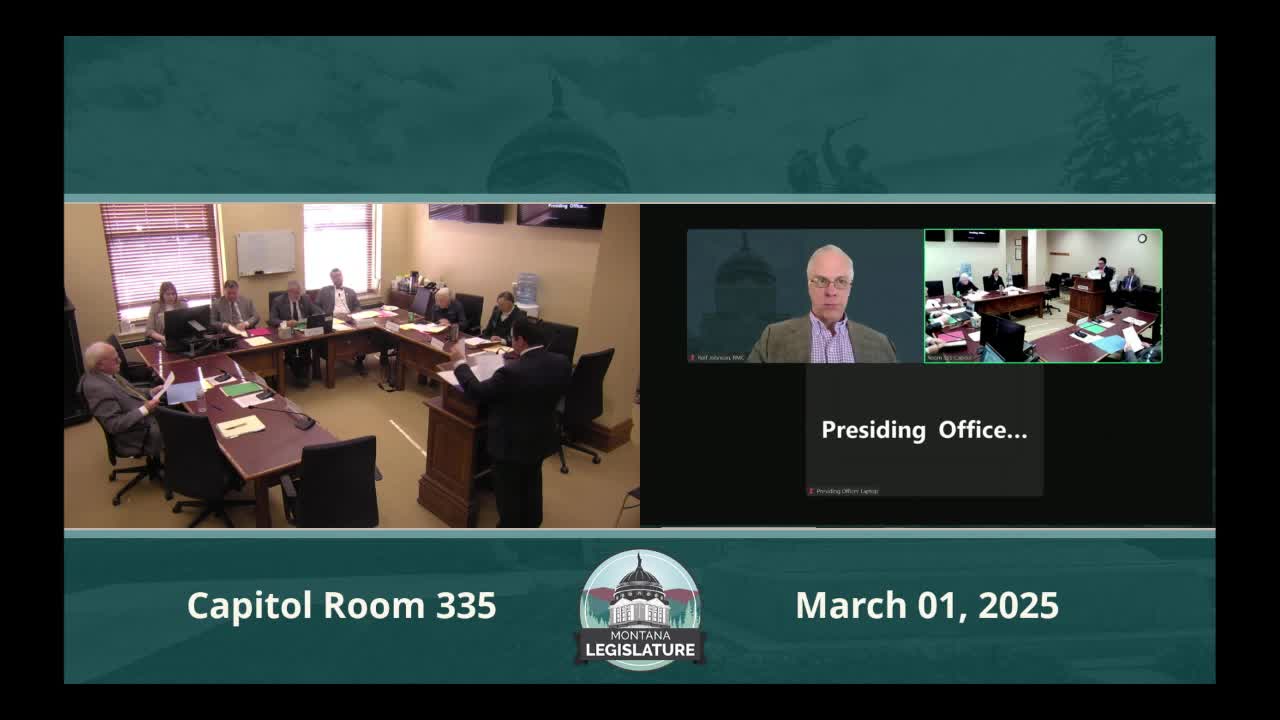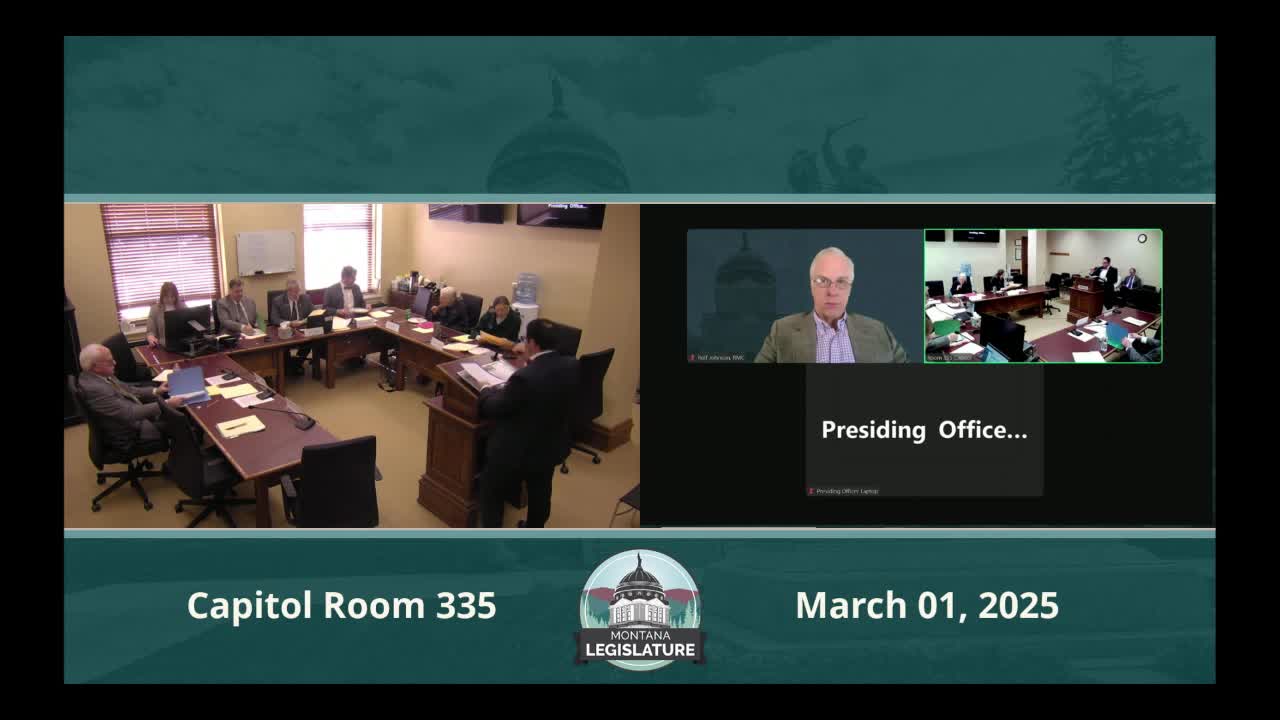Article not found
This article is no longer available. But don't worry—we've gathered other articles that discuss the same topic.

Committee approves bill clarifying receipt and time‑stamping of governor’s veto messages

Committee passes bill to clarify handling of governor’s veto messages

Committee tables bill that would let legislators use alternate email addresses for public business

